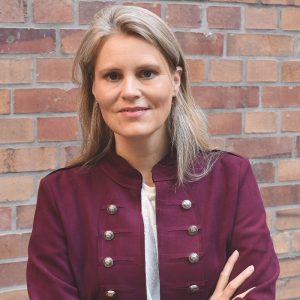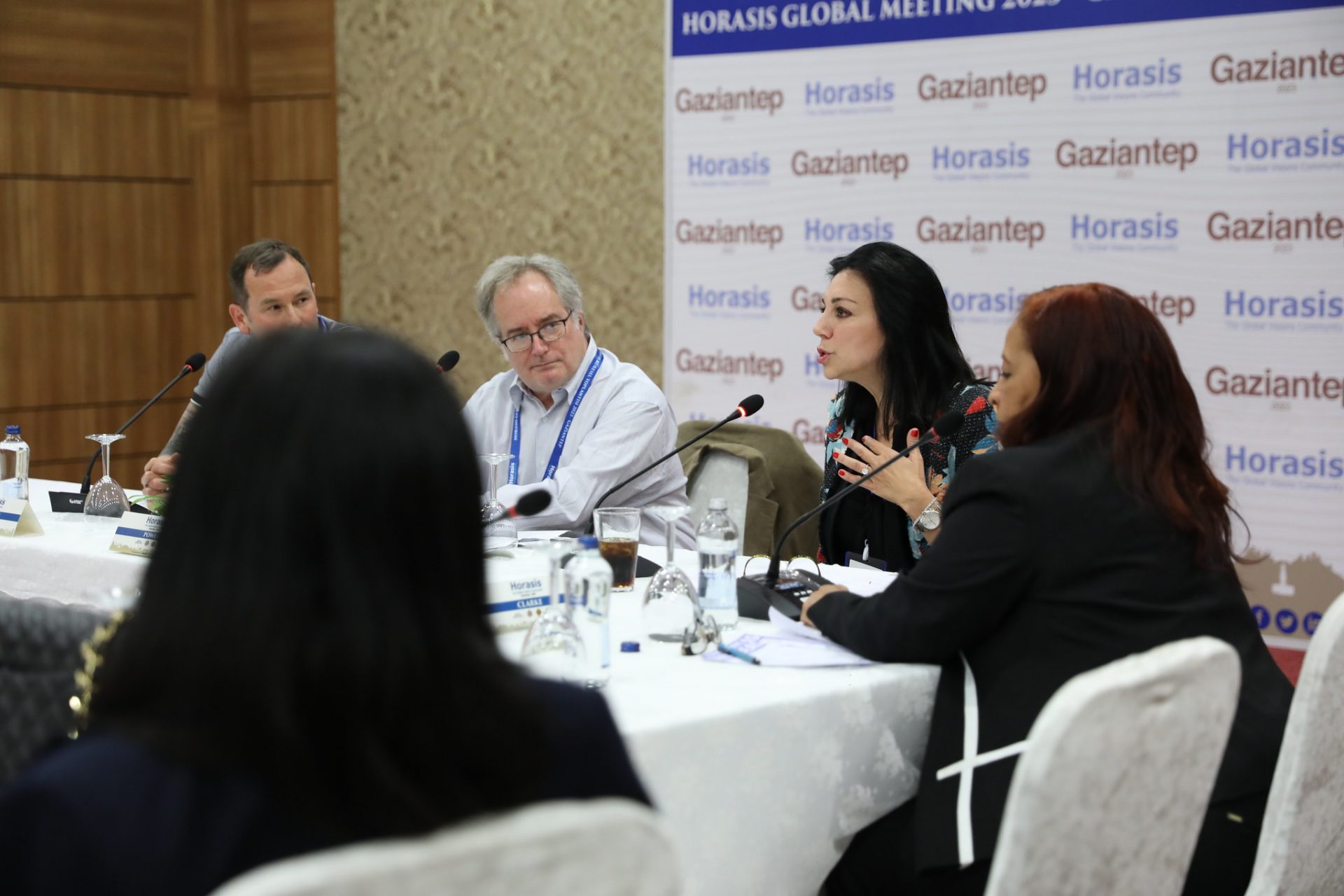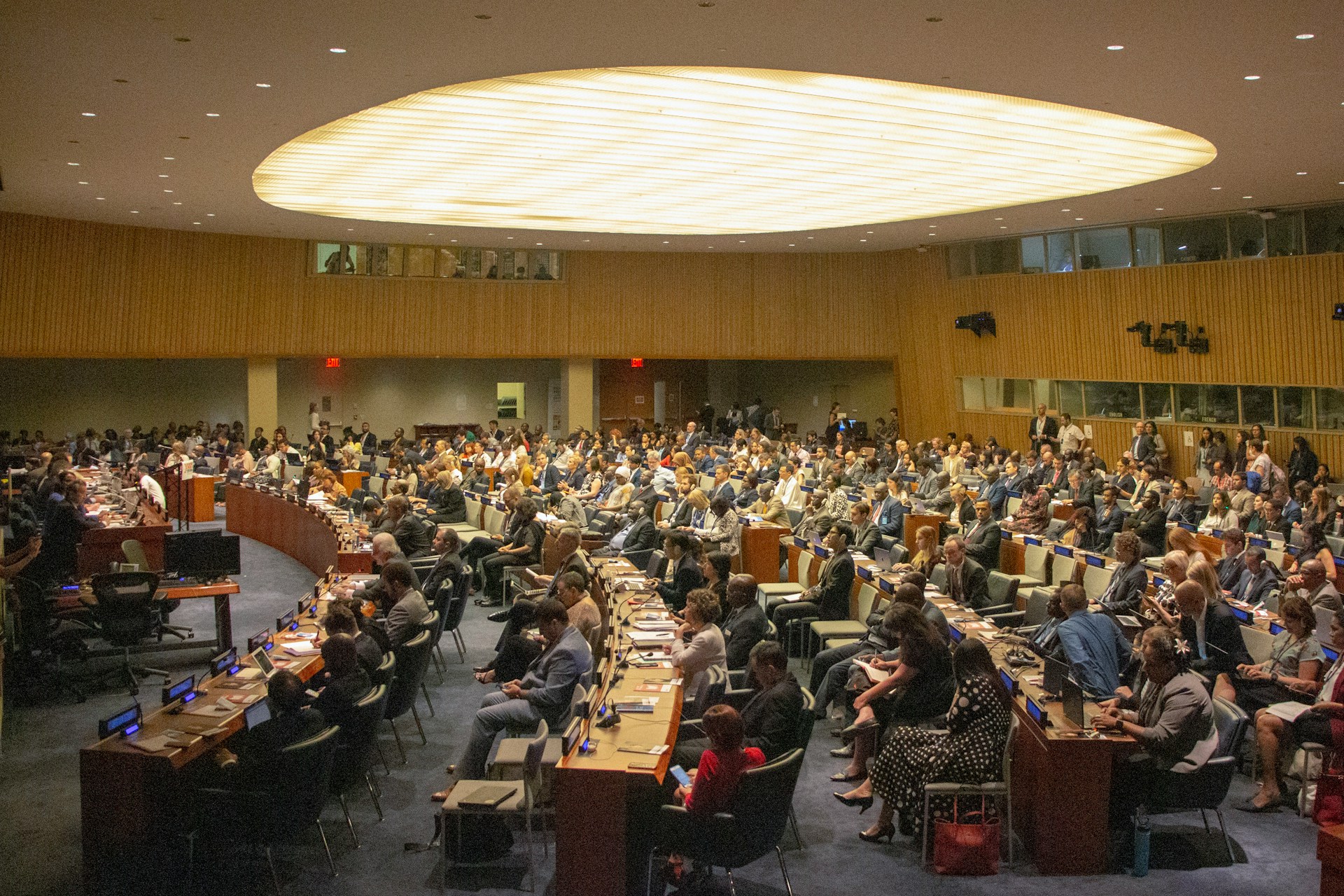Leadership in Uncertain Times
The panel on Leadership in Uncertain Times Official Session examined how multiple recent global crises have shown that old models of governance are running on empty. Leaders in business and government have to reimagine a world full of uncertainties forcing them to be innovative as they drive their personal vision in an effort to lead the organization to higher goals.
The conversation began with the observation that as uncertainty increases, the skills required of a successful leader change. There was a time when leaders were selected based on their ability to drive results, organizational structures were hierarchical in nature, and the communications within the organization could be described as a command-and-control atmosphere. However, in an uncertain world, this operational culture, which is very efficient as long as everything stays on plan, struggles to adapt when faced with a significant and unexpected change. When operating in a fluid environment where change is the norm, leaders and in fact the entire team must be flexible and able to quickly respond to changes in their environment.

Priscilla Clark, President, Clarke & Associates, USA made the point that in a dynamic environment, all leaders need to be much more communicative and flexible. Customers, partners, and employees all understand and accept that when an unforeseen issue arises, the organizations have to shift to take the new environment into account. When the leadership team is communicating freely and honestly about the issues and the operational changes that need to be considered, they are often willing to step up and help. However, when communications is lacking or the issue is painted-over, people can be left confused and uncertain hampering the organizations ability to respond.
Aysegul Dicle Aydin, Founding and Managing Partner, ADA Global Partners, Türkiye added to this perspective by highlighting the increased importance of trust in this age of uncertainty. When something expected happens and the organization needs to shift direction, trust becomes a critical issue. When a leader asks their employees to work together in order to account for some unforeseen situation, the employee response will be much stronger if the employees trust the leader and the leader demonstrates trust in the employees. The same can be said about the organization’s relationship with its partners and customers.

An observation made by Shaun Deverson, Director, Lighthouse Futures, Australia was that there seems to be a lack of trust within and between institutions. According to Shaun, “uncertainty today and in the future needs both preparedness and paradox. Embracing paradox is key – simple systems that encourage the types of internal behaviors that are innovative, sensory, mindful and adaptive will triumph over complex systems that shackle people and their ability to respond to uncertainty.” The organization’s ability to respond to an unplanned situation almost always require an increased level of collaboration between organizations. If a leader expects to begin building a trusted relationship with the external parties that are needed to formulate a successful response to an unexpected event, you cannot expect the response to go well. However, if the leader works to build those relationships during times of smooth sailing, those trusted relationship can be used to respond and minimize the impact of an unforeseen incident. In that same vein, leaders who respond to uncertainty by applying more shackles and restrictions will find their ability to resond to uncertainty increasingly difficult.

Dana Ulrike Glatz
Dana Ulrike Glatz, Founder, Global Impact Alliance, Germany extended this thought by pointing out that uncertain events are true unknowns. A leader has no way of knowing which relationships they will need to draw on to account for an unexpected event. If a leader only builds relationships within their circle, they will not have built the bridges needed for the unexpected because those are the events we are most blind to. Leaders have to be open and build trusted relationships with parties they are uncomfortable. An example given at the session was that of indigenous people; indigenous people are often very in tune with nature and have a wealth of wisdom that would be valuable in any climate change conversation but seldom are these people given a voice at the table. The large point being that leaders have to be comfortable reaching outside their comfort zone to build the collaborative relationships that become critical during times of uncertainty.
This means that leaders that can survive times of uncertainty need of level of emotional intelligence that was not expected of their predecessors. Historically leaders who could bully, coerce, and drive results through their personal force of will were rewarded. When a leader is trying to build trusted relations that span ecosystems, leaders will need to use their emotional intelligence to build the trust they need because they can no longer demand fealty or respect – it must be earned.

Shaun Deverson
Throughout the session, audience members offered comments, insights, and asked probing questions. Some of the questions raised throughout the session considered whether these new leadership skills suggest a move to a younger generation or whether it is a shift to a new personality type. We considered whether these new leadership skills can be taught at university or whether these personality characteristics are established well before that. There was also some conversation around the importance of data and technology both in detecting and responding to uncertainties. Unfortunately, most IT environments are structured around the established corporate hierarchy and in many cases it seems the rigidity of this infrastructure and other operational constructs males it difficult to fluidly respond to unexpected events.
By Jerry Power, CEO and Founder, i3 Systems, USA




